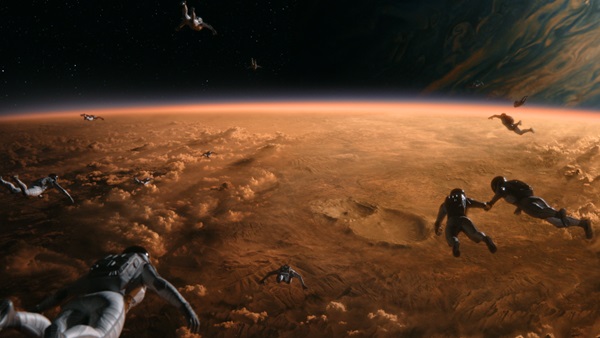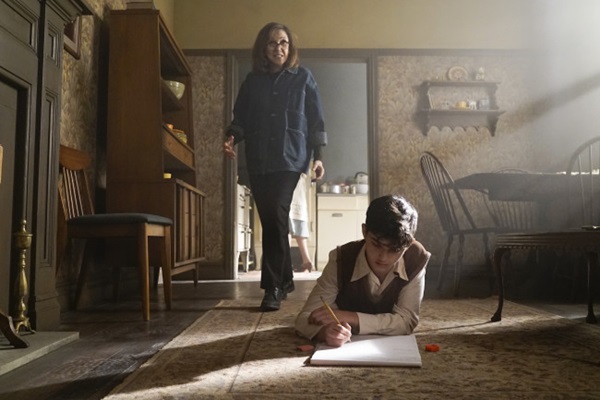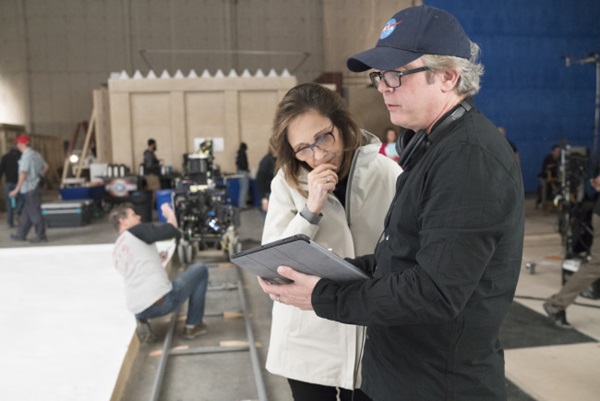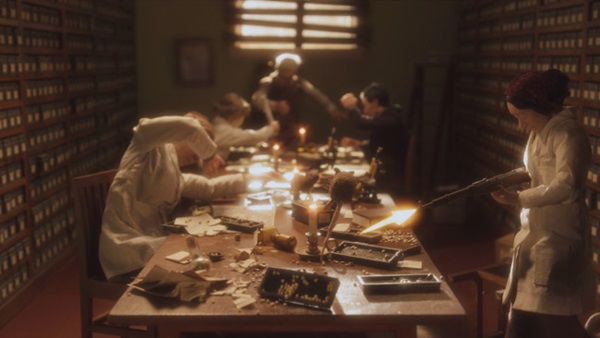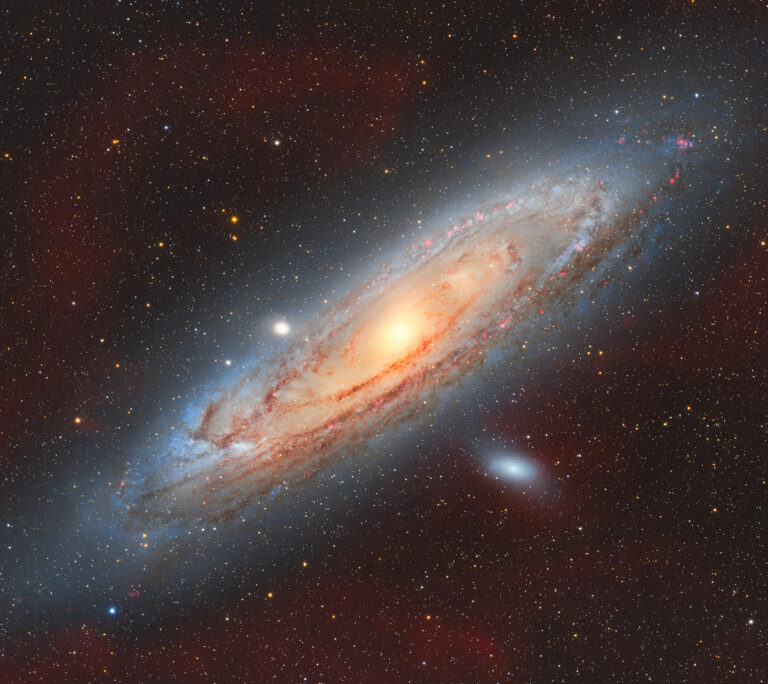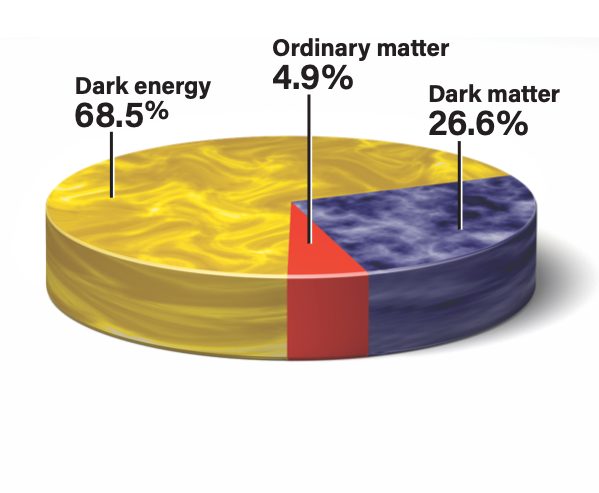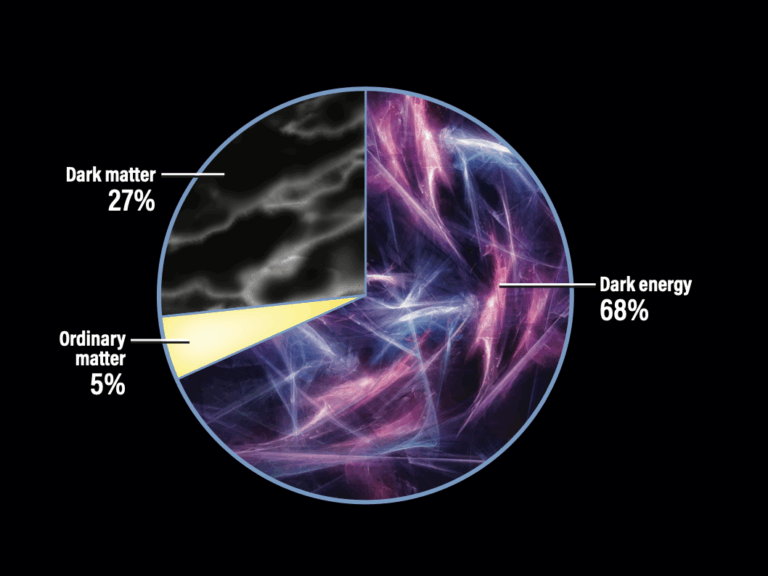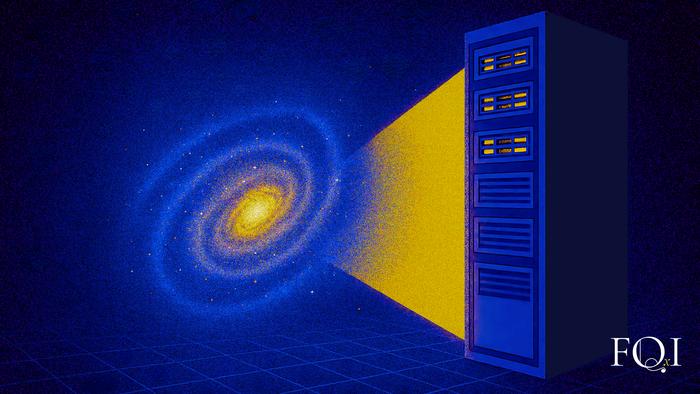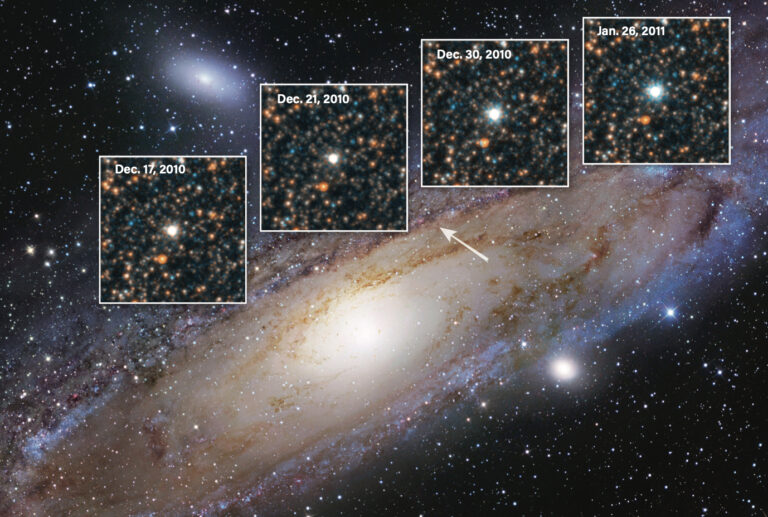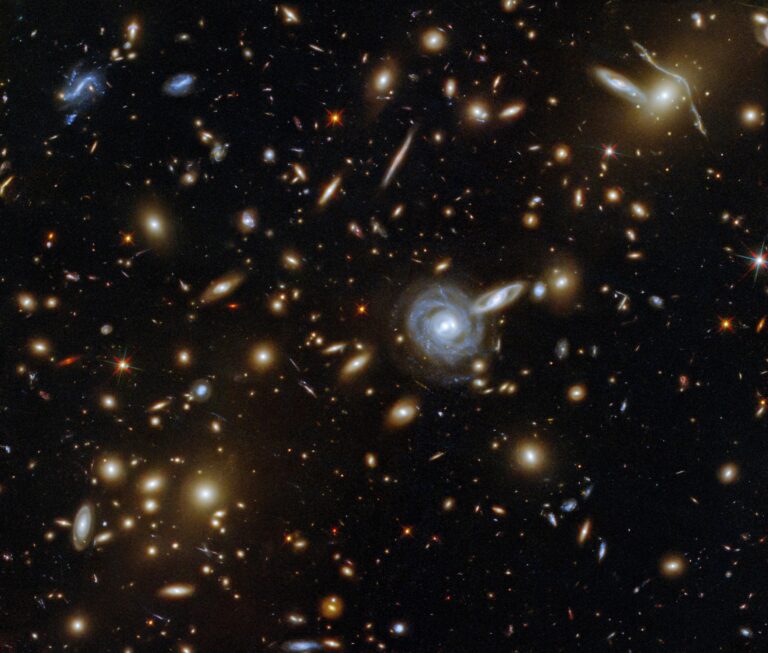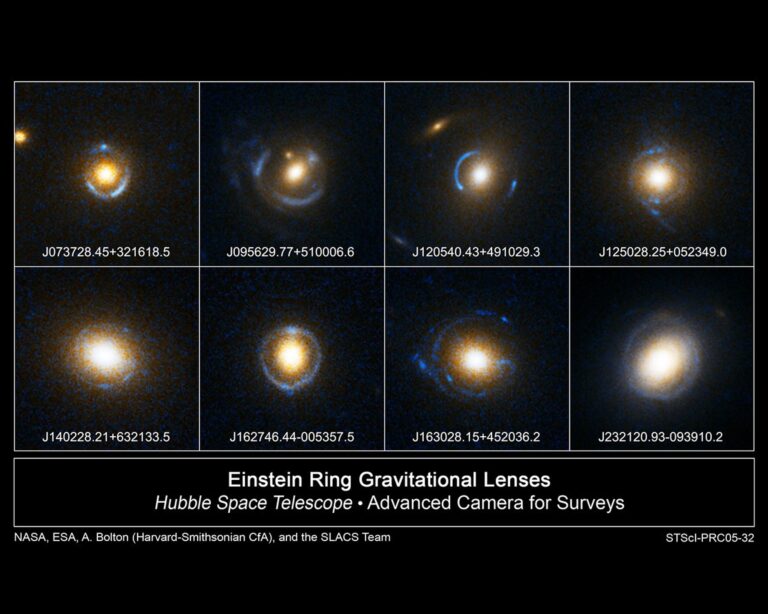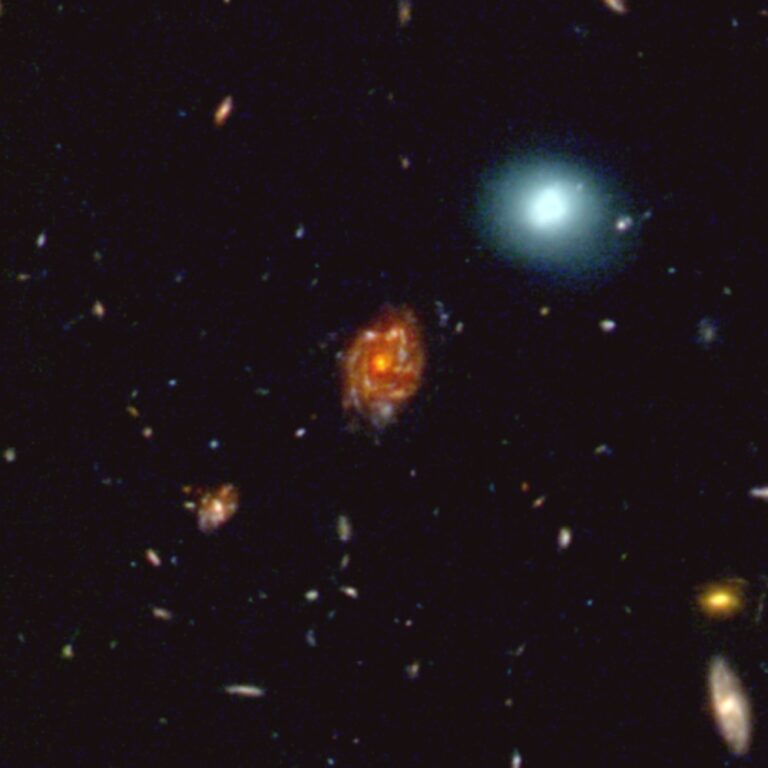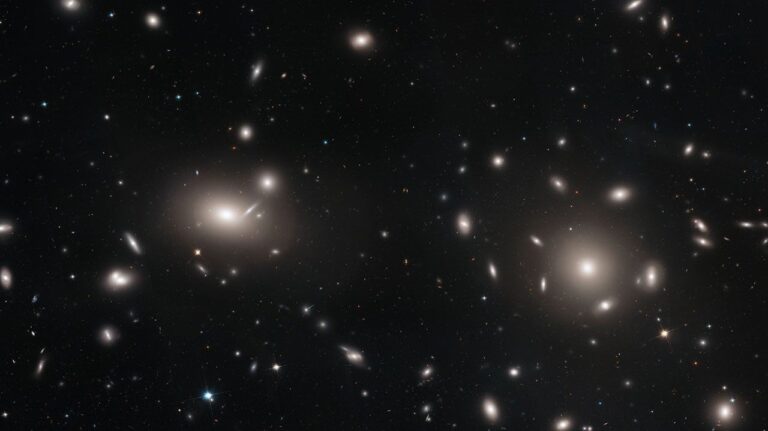Key Takeaways:
In my previous post I shared my interview with Neil deGrasse Tyson about the new season of the legendary Cosmos television series. But to get deeper inside the show, I also spoke with Ann Druyan, who co-wrote the original series from 1980 and who was the main creative force behind the two newer iterations. At a moment when we are all consumed with news of a global pandemic, Cosmos‘s grand perspective on life and understanding seems more relevant than ever.
Often identified (sometimes with a touch of dismissiveness) as “Carl Sagan’s widow,” Druyan is much more than that. Druyan and Sagan met at a dinner party way back in 1974, just a year after Sagan had become a true public figure with his first book, The Cosmic Connection. The two formed an instant bond, and soon collaborated on a science TV show for kids–a project that never reached fruition, unfortunately. They had much greater success on their next collaboration: the Golden Records aboard NASA’s space probes Voyager 1 and Voyager 2.
Both Voyagers are currently headed out of the solar system, flying into interstellar space. Sagan came up with the idea of including audio disks that would be attached to both probes, carrying messages from Earth off to the stars. The odds that any space alien will ever find the records are extremely low; neither probe is projected to come within as trillion kilometers of another star system within the next few million years. The real purpose of the Golden Records was to help people here on Earth think about our collective identities, and about what we would want an alien civilization to know about us.
From there, Druyan worked with Sagan on the Cosmos television show, on several of his books, and on the story that begat the movie Contact. After Sagan’s death in 1996, Druyan remained prolific. She worked with The Planetary Society to create Cosmos 1, a spacecraft designed to sail on sunlight. (It launched but was destroyed by a rocket malfunction.) She owns and operates Cosmos Studios. She advises the Breakthrough Message and Breakthrough Starshot projects. And she has written the new book Cosmos: Possible Worlds, a companion to the current TV series.
Druyan shares much of Sagan’s vision, but she has a viewpoint and a voice that is distinctly here own. I was curious to hear her thoughts about the current state of science, about where our society is headed in the far future–and of course, how these ideas play out in the 13 episodes of Cosmos: Possible Worlds. A lightly edited version of our conversation follows.
A lot has changed, both politically and scientifically, since the last season of Cosmos in 2014. How have those changes affected the way you approached the newest version of Cosmos?
I think that I approached it with a greater sense of urgency. A couple years after the most recent season we kind of fell down a rabbit hole. In many ways lost contact with reality. Since at the heart of science is this tremendous regard for nature and reality, I really was excited about doing one now. The episodes range broadly and widely, but there’s a through line, which is, it matters what’s true. Not absolute truth. We don’t get that! But these little successive approximations of reality are all we have.
To turn away from reality and to not listen to the scientists, couldn’t be more dangerous. We’ve begun seeing the consequences of our disregard for the environment, they have started to accrue at a rapid pace. I don’t want to yell at people and harangue them, but I would love to create a vision of a hopeful future–one that we can still have, based on the strength and courage of our ancestors and on the power of our technological and scientific reach. If we awaken from this crazy sleep.
It’s striking how optimistic this season is. You seem committed to a long-term perspective, treating what’s happening now as a blip in a very drawn-out process of fighting against superstition and embracing the responsibility that comes with our knowledge.
I totally agree with you. If anyone ever says to me, ‘Music is no good anymore’ or ‘These kids today…’ I always fight against that. We are who we’ve been for a long time. We were all basically playing from the same deck. But I can’t remember a situation where we weren’t supposed to have any deck whatsoever. I just saw a headline on CNN about all these bureaucrats saying, ‘We’re afraid to raise the alarm on environmental dangers because it would upset the President.’ They don’t want the President mad at them? That’s like Nero. It’s not in our national interest.
To get back to the show, it was my intention and it was [Cosmos co-writer] Brannon Braga’s intention to create a dream of the future, in a world full of horrifying, dystopian fantasies. I’ve always believed that dreams are maps. You present a dream of a future that’s worth working for. I wanted to inspire people. The apocalyptic visions of what’s going to happen to us haven’t succeeded in melting that frozen sea inside us. You can’t expect a student to do the hard work–to know a subject deeply, the way it’s required for an engineer, a mathematician, a scientist—if they have no faith in the future.
The discussion of the 1939 World’s Fair has a lot of resonance in that context. It was an extravagant dream of the future happening on the eve of World War II, and Cosmos really captured that moment.
I’m so glad you felt that way. It’s ironic that people had such agreement the bright future. It was the same thing in ‘64 with the 1964 World’s Fair. Tens of thousands of nuclear weapons were on hair triggers, it was the height of the arms race and this constant escalation of destructiveness, and yet we were dreaming of these massive, beautiful places, cities on other worlds, and how cool the future would be. We lost that. We have to rekindle that dream.
I remember going to the New York World’s Fair when I was a teenager in Queens, and what that meant for me, what the space mission of the 60s meant to me. That was an occasion for great human self-esteem. I think our self-esteem right now is at an all-time low. We have news coming at us from all different directions, every single day, we hear about the species extinction rate. I sense among the young people I know a great dread. Then I think of what our ancestors went through, what they faced. I think we need to be reminded that we come from really strong stock, and we have what it takes.
The dreaming in Cosmos goes really far: You discuss life on Enceladus, you envision interstellar travel. How did you decide the outer bounds of where you were willing to go in the series?
Well, obviously the imagination doesn’t obey the laws of space and time! We didn’t want to be irresponsible and show things that have no scientific basis, but we also wanted to make people aware that there really have been, and will be, ambitious robotic missions.
We were deliberately vague about life on the bottom of the Enceladus ocean; we were suggesting it without really depicting it. There was a moment where you think that you’re seeing extraterrestrial life forms, but in fact every one of them is native to Earth, which we have Neil say at the end. Nature is genius. You’d never be able to make up the real creatures of the deep ocean.
There were also moments when we felt it was okay to let loose, because we hoped we made it clear what we were doing. What was so funny about the first season of Cosmos is that Carl [Sagan] was constantly being harangued at the time for being so speculative. I’m very proud of his batting average on those speculations. It’s phenomenal how many of them have proven to be real.
A lot of your new speculations are based on real proposals, like the Breakthrough Starshot concept an interstellar mission, or geoengineering concepts to deal with climate change.
Exactly. I wanted to convey something of the possibilities. It was like: Let’s just get going again. Let’s get back in the business of doing the kind of exploration that captivates a global audience.
You got to imagine so many possible worlds for this series. Do you have a few favorites, specific ideas or visual moments that to you especially encapsulated the theme of the show?
I love when all the [future] humans are talking across the galaxy, and then at the end, it’s about how they’ll remember the Pale Blue Dot [image of Earth taken by Voyager 1]. They’re all, “Oh maybe you haven’t ever seen it, but that’s where every human came from.” The last words you hear are “thank you, mother,” to the Earth, spoken by Nick Sagan. He was a voice of the children of planet Earth on the Voyager record when he was seven, and now he’s that last voice. I always choke up at that.
I love the trip into the subsurface ocean of Enceladus. Another moment I’m crazy about is in the opening title: the newborn Jupiter carving out its lane in the solar system when there were no other planets born yet. I’m very proud of the Cassini sequence, with the last nmemories of a robot that’s about to be compelled to commit suicide. And when I say “I,” I’m talking about [co-writer] Brannon Braga, [executive producer] Jason Clark, [VFX director] Jeff Okun, and all of our 987 colleagues on Cosmos.
987 people worked on the show? Really?
Literally! It is a web of minds, and everyone who I interacted with was inspired about working on something they felt was meaningful. That made for spectacular esprit de corps.
Science progresses so quickly. Were there any new developments that you just didn’t have time to incorporate into the series?
Cosmos has never been the latest flavor of the month. It has been always trying to communicate the discoveries of science over the ages. It’s about science as a way of seeing everything. We did cover the first verification of gravitational waves, but not in an encyclopedic way. We take you there [visually]!
What I would be so happy about is—I don’t expect everybody to understand everything about science at the end of the season, but I want them to be curious about learning more. I want them to understand the power of science, and its tremendous liberating potential. If those things are communicated, then I feel like my work is done.
You also dig deeply into the history of science, in the tradition of Carl’s original Cosmos.
For 22 years, I’ve wanted to tell the story of Nikolai Vavilov. It’s in episode three of the new season. I had been reading about Vavilov for years, but I didn’t really know the story of his colleagues and their astonishing commitment to our future, and how they were willing to suffer and die in the most horrible way, so that they could protect our future [by safeguarding Vavilov’s seed bank]. That really struck me: If only we loved and cared about our future as much as they did.
That’s a big theme in Cosmos, it seems: People who helped build a better world that would exist long after they were gone.
I agree. We also tell the story of Yuri Kondratyuk, who had two identities. He had to change his name to escape Stalin’s police. This is a guy who envisioned the Apollo approach to the Moon [lunar-orbit rendezvous] in a World War I foxhole, and wrote a book about it. He had imagined a lunar orbiter that was assembled in orbit, 50 years before Apollo.
Kondratyuk never got to see our trips to the moon, but he began his book with the words, “Who are planning the first mission to the moon. Do not be afraid. There is no physical reason why you cannot achieve this.” Just the idea of someone writing a letter to the future, knowing that he’ll never live to see it. If we could only just see our lives as links in the chain of life, and see as our first responsibility to get that next link in the chain safely to the future, as some of these people did.
Do you feel like history is another space that needs more exploring—another of your “possible worlds”?
Yes, so much of our history is still a blank. When I say our history, I don’t mean just a civilization. I mean the genius of science, its ability to reconstruct the world of a million years ago, or a hundred million years ago, or billions of years ago. Why are we so paralyzed that we can’t even get our act together to fight for that? That’s what I don’t understand. But that’s what I hope we’ll do.
If you could live another thousand years, or another million years, would you want to?
I would love to see how this story plays out, but I don’t want to live another million years! My brainwaves and heart sounds from one of the most wonderful days of my life are recorded on both Voyagers [on the Golden Records aboard Voyager 1 and Voyager 2]. They’re now 17, 20 light-hours from here, beginning a future of billions of years circling the Milky way galaxy. I don’t understand the desire to live forever, because to me life is the fabric of love–of your family, your friends. I feel like we are very much prisoners of our moment.
And you don’t fear death?
I think it’s good that we die. I just wish that more of us could have more fulfillment, and know the beauty of life more fully.
When I hear about Silicon Valley billionaires who want to live forever, I think to myself: There’s no higher entitlement than thinking that you should live forever, when part of the beauty of nature is that even the stars die. That’s what Emily Dickinson said: ‘That it will never come again/is what makes life so sweet.’ I believe that.
Would I like to know where the narrative goes over the course of that time? Yeah, I’d be fascinated, but I like the way nature works.
For more about science and discovery, follow me on Twitter: @coreyspowell

